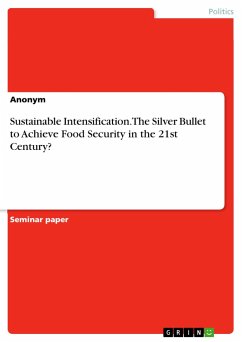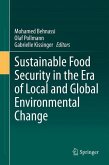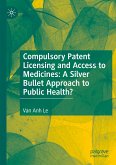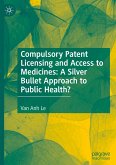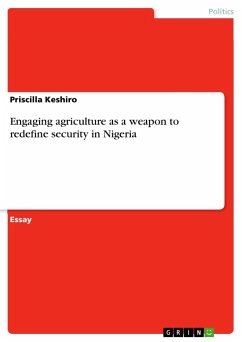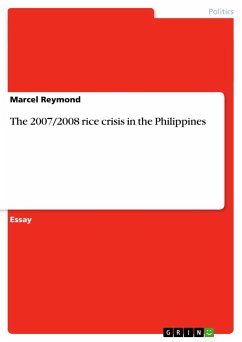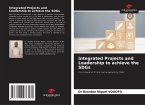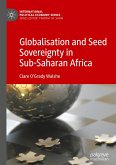Seminar paper from the year 2017 in the subject Politics - Environmental Policy, grade: 1.3, University of Potsdam, language: English, abstract: In the last years, global concerns about the issue of how the world can provide a growing population with sufficient food have attracted increasing attention. Studies suggest that with world population growing up to around 9 billion until 2050, global food production needs to increase by 60 percent to 110 percent. Trends like globalization and urbanization as well as shifting diets will not only influence what kind of food is needed but also how it is produced and distributed. The food price volatilities in 2007/2008 and again in 2011 revealed the vulnerability of millions of people to hunger. Also, agriculture is a major driver and victim of climate change. This nexus of concerns - price volatility, environmental damage, population and consumption growth - poses a major challenge to policymakers with regard to food security. There seemsto be a common understanding that the way in which food is produced needs to change. The key question for the international community is: How can food security be attained in the future, while at the same time minimizing environmental impacts?Some claim that the concept of sustainable intensification, which has gained popularity in political and scientific circles in recent years, provides an adequate answer to this question. Support for the concept comes from high-profile papers as well as from policy documents. There are different takes on what sustainable intensification actually means but most approaches agree on the the following premises: food production has to increase; the vast majority of this increase has to come from existing agricultural land; increasing the sustainability of food production is of major importance, a broad range of tools and production methods must be considered to attain these goals.
Hinweis: Dieser Artikel kann nur an eine deutsche Lieferadresse ausgeliefert werden.
Hinweis: Dieser Artikel kann nur an eine deutsche Lieferadresse ausgeliefert werden.

